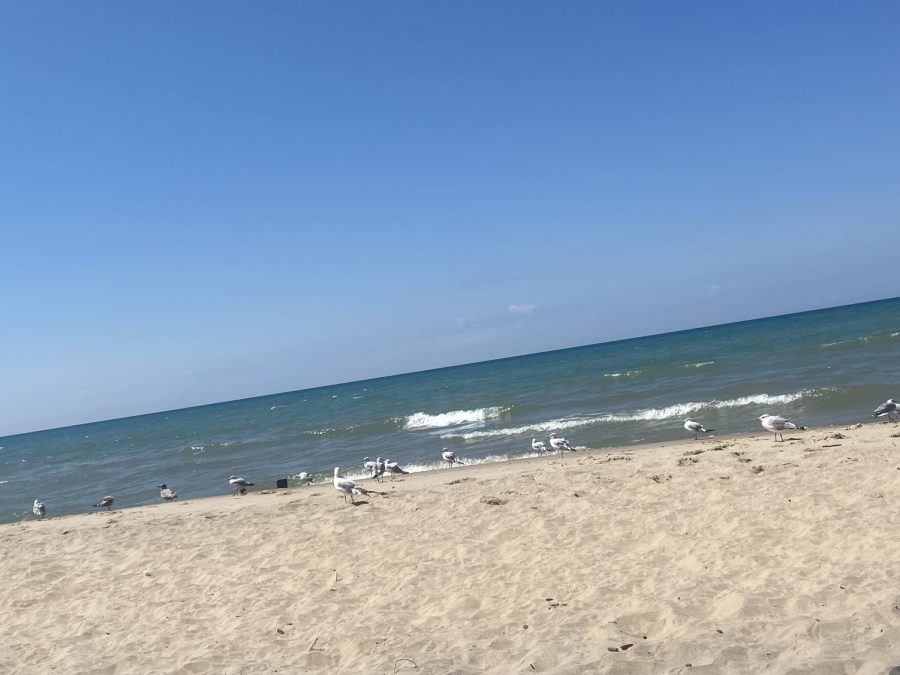How pollution is affecting Michigan
Pollution is a major problem here on Earth; whether it be trash in the water or harmful chemicals being released, it all affects one of the main human resource: water. There are already many people recognizing the situation and are hard at work trying to fix the problem before it has the chance of getting worse.
Sophomore Pyper Norris has thoughts on pollution and would like to share her input into this topic, “Water pollution isn’t a good thing; it’s killing many animals maybe even people.”
Senior Linda Hernandez has her thoughts of pollution and would like to express her feelings about it to the community: “I think humanity definitely needs to protect more water sources considering how much mother nature has given to us, the least we can do is try to keep it clean.”
Sophomore Danni Fritz also shares her thoughts on this subject, “I think pollution is a huge issue across the world, and we all should be mindful of the impact we have on our water. Also that water is a necessity and we should do all we can to keep it clean and safe.”
Michigan has an online website called The Department of Environment, Great Lakes, and Energy. On this website, there is a section called the Areas of Concern (AOC) program. It was created by the United States and Canada and was under The Great Lakes Water Quality Agreement signed in 1972.
According to the AOC website, there are forty-three Great Lakes sites that have environmental damage. Those sites were designated as areas of concern and are still in need of restoration. Fourteen of the sites are in Michigan.
The AOC program in Michigan works with federal and local partners to help restore the sites affected by legacy contamination and development.
Legacy contamination is where human-made contaminants are released into the environment, for example, water, air, and land. These contaminants most often end up in lakes and rivers. Legacy contamination is from chemicals that were once used in the U.S. but were later banned. Although they were once banned, the chemicals are not completely gone they can still linger in the soil and water. With them being in the soil and water, it is slowly breaking down and affecting the wildlife long after the chemicals were even banned.
An example of legacy contamination is dichloro-diphenyl-trichloroethane or better known as DDT. DDT was a popular and widely used pesticide after WWII. It was later banned from being used in the United States in 1972, but although banned it was still continuing to be produced here and shipped to other countries until 1985. It is said that DDT can take more than thirty years to degrade into cold clay soils, which were found in some areas of the upper Midwest. Due to the long range of atmospheric transport, it continues to bring DDT to the U.S. from overseas, which infuses soil and water with toxic chemicals. An example of this affecting wildlife is the bald eagle, the bald eagle is affected by this due to their primary diet of fish. The concentrated chemicals from the PCB increase with the rise of the food web; this rise also affects the process known as biomagnification. Once at a certain concentration level, both contaminants are hypothesized to adversity affect the wildlife. While wildlife may eat these fish, humans also eat fish so that could end up affecting us also.
There is also another chemical called polychlorinated biphenyls (PCBs) which is similar to DDT. PCB is a group of industrial chemicals used mainly in electrical equipment banned in 1979 but are still found in the blood and tissue of the Great Lakes wildlife.
There are three sites in Michigan that have now been restored: White Lake, Menominee River, and Deer Lake. While the other eleven are in multiple stages of restoration.
If you want to help make the Earth cleaner and restore our water sources, you can help the AOC program by picking up items that could cause harm to wildlife.

